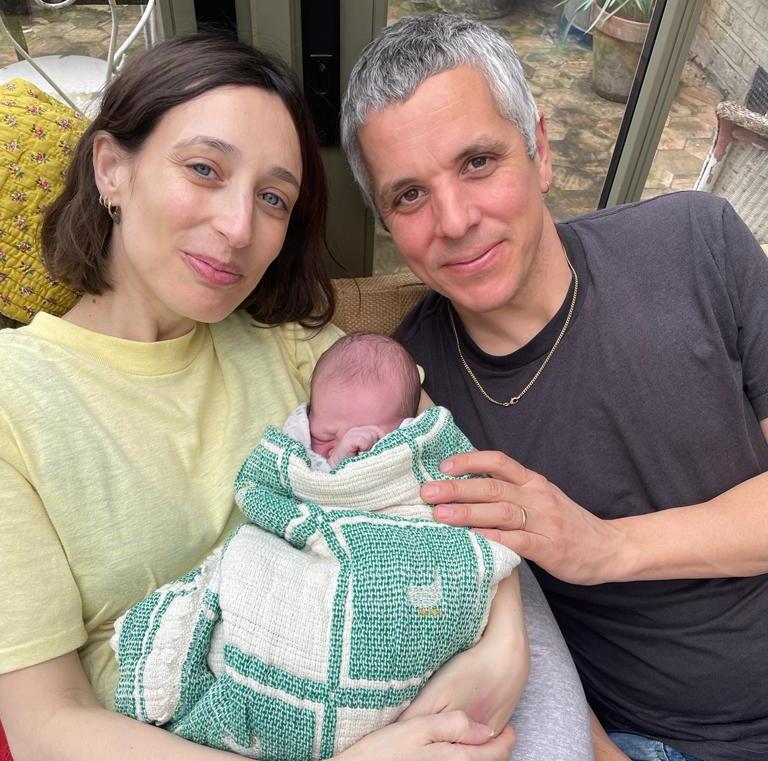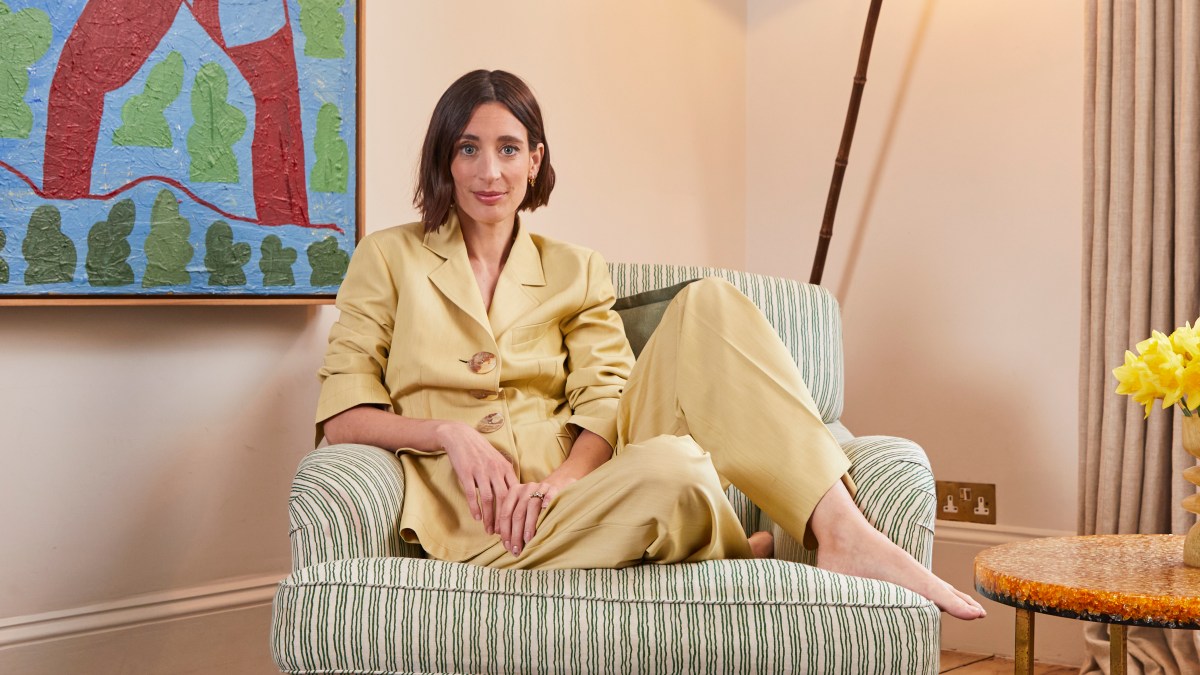Three weeks into my third pregnancy, in the summer of 2022, my husband, Jon, and our two children, Sidney and Remy, went on holiday to France for the summer. I felt crap. I was tired and really sick. So sick, in fact, that when we got back to the UK I wound up in hospital. They kept me in overnight because I’d been vomiting nonstop for about 12 hours. For the next few weeks I couldn’t keep any food down. Eventually the vomiting stopped but all I could do was sit in bed and eat croissants; I was repulsed by everything else.
That was just the beginning. After our holiday I went from feeling a bit down and tired to constantly exhausted — and so, so miserable. I didn’t want to get out of bed. I felt as if I’d lost my personality. I cried every single day and I looked dreadful. I look back at pictures of that time now and I’m dead behind the eyes.
It’s difficult to feel like that when your job — like mine — is all about meeting people and presenting your best self to the world. Not to mention that I felt like I should be grateful — that as I was lucky to be pregnant, I was doing something wrong by feeling so awful.
Soon, every day was just about getting through it. I didn’t want to see anyone. Anything that came up for work that I needed to do, I’d do — but afterwards I’d just get into bed with my children, cuddle them and eat more croissants.
These feelings were so alien to me: normally I’m such an optimist and a grafter, and I refuse to let anything get me down. This was the first time I didn’t have a solution to one of my problems.
It also took me by surprise because I had a straightforward pregnancy with my first child. Pregnancy number two was during Covid so it’s a bit harder to measure: I only ever really saw anyone in the medical profession when I had a scan. But I certainly hadn’t felt like this. I took vitamins and did all the things women are supposed to do. But the heaviness followed me everywhere.
This wasn’t just a bad pregnancy — in fact I had antenatal depression. I knew about postnatal depression, of course — one of the first questions they ask you after you have given birth is: “How do you feel?” But I learnt that you can also get depression when you are pregnant. And that’s what I had.
Postnatal depression can be difficult to diagnose because some mood changes — such as feeling tired or irritable, especially when you already have small children — are normal in pregnancy. But with antenatal depression you feel sad, low and tearful a lot of the time; you lose interest in other people and the world around you; you don’t want to eat, or you eat more than usual; and you have all sorts of negative thoughts. If it’s not treated it can get worse and lead to postnatal depression.
• More new mothers seek mental health treatment
In fact, experiences such as mine are not uncommon. Perinatal mental health conditions affect up to 20 per cent of women during pregnancy and the first year after having a baby, and about 12 per cent of women experience depression when they’re pregnant. It can stem from all sorts of factors: a family history of mood disorders; your hormones going wild; and stressful life changes.
I don’t know why it affected me. I do wonder if pregnancy — carrying the three lots of genes and hormones that were my children — caused some sort of imbalance. But when I talked to my midwives about it they said there is no rhyme or reason behind antenatal depression: nobody could say why I had been affected. I was about 14 weeks pregnant when I was diagnosed.
Luckily I have an amazing husband who took our kids to the park when I couldn’t face the world, and a brilliant team of midwives who looked after me throughout the pregnancy, including putting me in touch with the NHS’s perinatal mental health team. They floated the idea of me taking antidepressants but I couldn’t get my head around it. I felt like I just needed to get to the end of the pregnancy and then I would feel better.

With her husband, Jon, and their third child, Nico, 2023
I did feel better at first. My son Nico was born quickly and easily at home in April 2023. For a few weeks I was just so happy. He was such a beautiful boy. But after a few weeks I started feeling bad again. The sadness crept back in, like an uninvited plus-one. How did you get in?!
I struggled on but the rest of that year — and well into 2024 — was really tough. I was diagnosed with ADHD, I lost a friend to suicide and I was burying my head in the sand about not feeling quite myself. In the end it all caught up with me. My husband supported me endlessly but it wasn’t easy.
Finally, in October 2024, I went to see my local GP who was fantastic. He gave me a prescription for an SSRI antidepressant: sertraline. It was like night and day — suddenly I started feeling like my old self again. Two years after having Nico, I feel like I finally have my whole self back. How long will I continue to take it? I’ve no idea.
I think a lot of women feel embarrassed to admit that they’re finding things hard during pregnancy. We all feel as if we should be holding our bumps and glowing. But you can be grateful to be pregnant while also struggling with your mental health. It’s isolating: I felt such shame about the fact I was counting down the days until my due date.
• Read parenting advice, interviews, real-life stories and opinions
If my depression had happened to me with my first child I might have paced out my later pregnancies, or thought differently about subsequent pregnancies. I romanticise the idea of having a fourth — I hope Jon isn’t reading this — but honestly, I would be terrified. Jon said he couldn’t see me, or us, go through that again.
I tried to see the challenges I faced as valuable lessons. While it was frightening to witness my own fragility, it opened my eyes to the importance of caring for my mind. I’ve learnt there is no shame in struggle and that through love, openness and support, we find our strength.
The Samaritans helpline is available for free support 24 hours a day on 116 123

